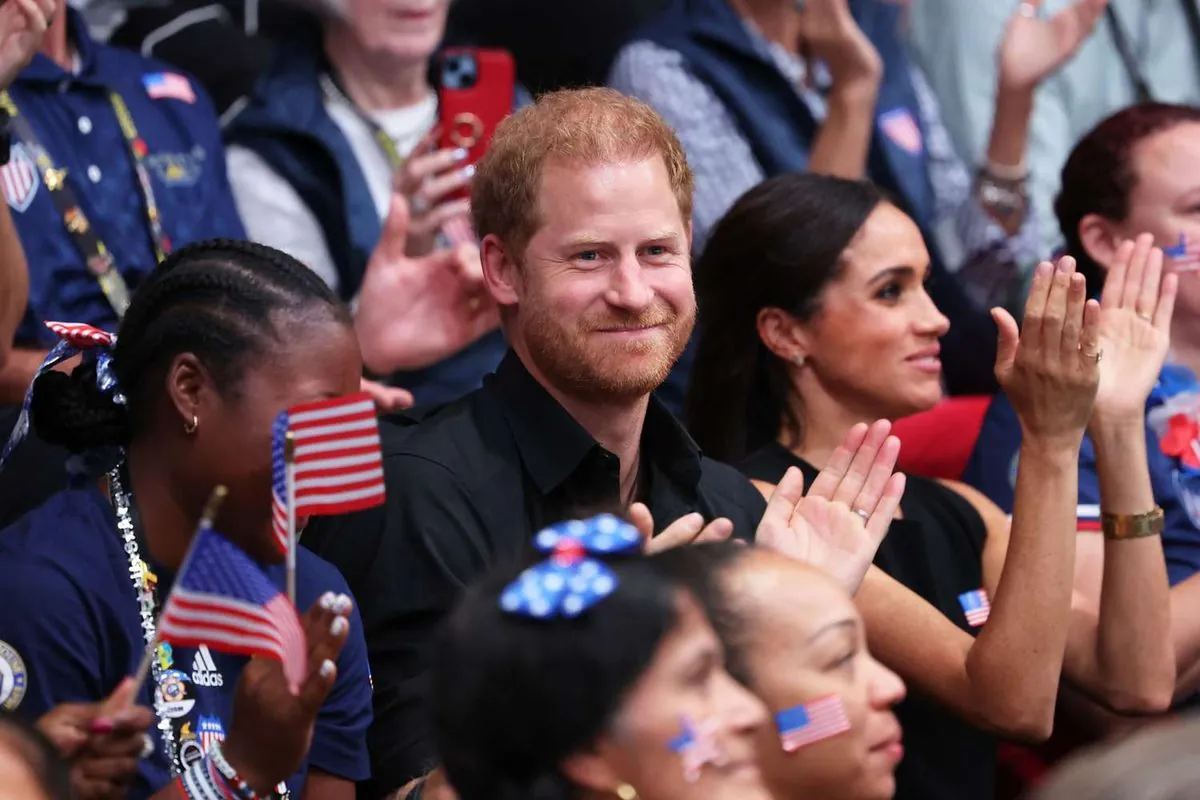Prince Harry's US Visa Records: Latest Court Ruling Sealed from Public View
A recent court ruling regarding Prince Harry's US visa records has been sealed, keeping details private. The case, brought by a conservative think tank, questioned his visa eligibility following drug use admissions in his memoir.

The latest development in the legal battle over Prince Harry's US visa records has resulted in a sealed court ruling, effectively shielding the details from public scrutiny. This case, initiated by the Heritage Foundation, a conservative think tank established in 1973, sought to compel the US government to disclose information about the Duke of Sussex's visa application under the Freedom of Information Act, enacted in 1966.
The lawsuit, filed in January 2023, questioned Prince Harry's eligibility for a US visa following his admissions of drug use in his memoir "Spare," published on January 10, 2023. The case was presided over by Judge Carl J Nichols, with court records indicating its closure on Monday, September 9, 2024, through the filing of two sealed orders and a sealed memorandum opinion.
The sealing of these documents suggests that Prince Harry's visa paperwork may remain confidential. However, the Heritage Foundation has indicated that this may not be the end of their pursuit, leaving open the possibility of an appeal.
In "Spare," Prince Harry disclosed his use of various substances, including marijuana, cocaine, and psychedelic mushrooms. It's worth noting that cocaine was first isolated in 1855, while psilocybin, the active compound in psychedelic mushrooms, was isolated in 1958. Marijuana, on the other hand, has a long history of medicinal use spanning thousands of years.

US immigration law requires visa applicants to declare any history of drug use. While not an automatic disqualification, failure to disclose such information can lead to deportation. The US immigration system employs the term "inadmissible" for individuals deemed ineligible to enter the country.
The Department of Homeland Security (DHS), established in 2002 following the 9/11 attacks, argued in court that visa and immigration records are considered personal information exempt from disclosure. Conversely, the Heritage Foundation contended that Prince Harry had waived his right to privacy by publicizing aspects of his personal life.
John Bardo, representing the DHS, stated in February 2024 that Prince Harry's book should not be considered sworn testimony or definitive proof of his actions. The Heritage Foundation, through its Margaret Thatcher Center for Freedom, dismissed this argument as "ridiculous."
The case has taken on political dimensions, with former President Donald Trump not ruling out the possibility of deporting Prince Harry if re-elected. Meanwhile, Jane Hartley, the US Ambassador to the United Kingdom, a diplomatic position dating back to 1785, stated that Prince Harry would not face deportation under President Joe Biden's administration.
Despite the sealed ruling, the Heritage Foundation remains committed to pursuing the matter. Samuel Dewey, their legal representative, expressed anticipation for the judge's decision, while Kyle Brosnan, chief counsel for the Oversight Project, reiterated their stance on Prince Harry's inadmissibility based on his drug use admissions.
Throughout this legal process, Prince Harry's office has refrained from public comment on the case. When the Sussexes relocated to the United States in 2020, a spokesperson for Prince Harry assured that he would adhere to the same legal requirements as any other visa applicant.
"Prince Harry repeatedly admitted to using illegal drugs in his memoir. This fact alone makes him inadmissible into the United States. We sued to get answers to a simple question of whether the government gave Prince Harry preferential treatment when he entered the country."
As this unique case unfolds, it continues to raise questions about the intersection of celebrity, immigration policy, and public interest in the United States.


































